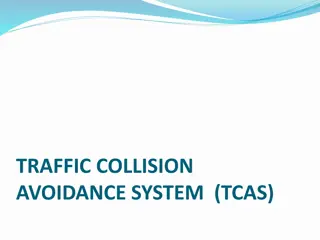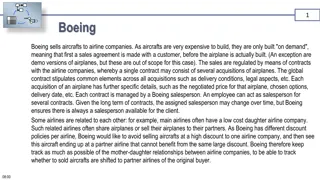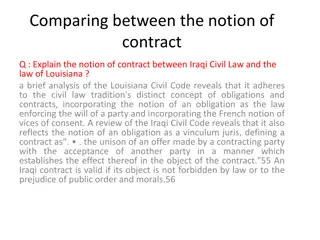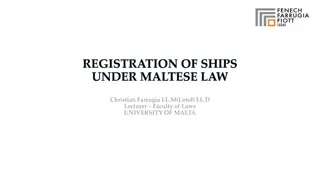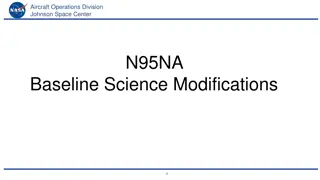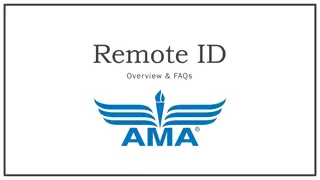Exploring the Legal Framework for Ships and Aircraft in Civil Law Countries
Delve into the legal provisions governing ships and aircraft in Civil Law countries, focusing on obligations, property rights, security trusts, and lawful causes of preference. Discover how these regulations attract maritime and aviation industries and contribute to economic growth by establishing a secure legal infrastructure.
Download Presentation

Please find below an Image/Link to download the presentation.
The content on the website is provided AS IS for your information and personal use only. It may not be sold, licensed, or shared on other websites without obtaining consent from the author. Download presentation by click this link. If you encounter any issues during the download, it is possible that the publisher has removed the file from their server.
E N D
Presentation Transcript
https://www.fff-legal.com/student-files/ Fenech Farrugia Fiott Legal
First questions: why are we focusing on ships and aircraft? The Maritime and aviation industries have become important mainstays of our economy; An example of how a small country can carve its name among important global economy players for all the right reasons tfenech@fff-legal.com www.fff-legal.com
As a Civil Law country, our general law of obligations is codified in the Civil Code Art.1994: Whosoever has bound himself personally, is obliged to fulfil his obligation with all his property, present and future. Art.1995(1): The property of a debtor is the common guarantee of his creditors, all of whom have an equal right over such property tfenech@fff-legal.com www.fff-legal.com
Art. 1995 provides for 3 particular qualifications to the general rule, being: Lawful causes of preference; Transfer of property by way of security; or Transfer under a security trust in accordance with the Code A fourth area is what can be described as the alternative regime that has been introduced for ships and aircraft tfenech@fff-legal.com www.fff-legal.com
Art. 1996: The lawful causes of preference are privileges, hypothecs and the benefit of the separation of estates. Arts. 1994 2095 proceed with setting out the legal infrastructure which provides for the establishment of privileges and hypothecs, of a general or special nature, and over all property or specific property. tfenech@fff-legal.com www.fff-legal.com
Art. 2095E deals with Security Trusts; Arts. 2095F-2095I regulate security by title transfer; tfenech@fff-legal.com www.fff-legal.com
Anglo-Saxon asset finance models, and the mortgage in particular, were seen as key to attracting ships to our flag; The same is true for the development of the aviation register; transfer of title by way of security is an interesting mechanism introduced as part of the aviation-driven reforms in 2009-10 that may be the key to having a more integrated system for asset finance going forward; tfenech@fff-legal.com www.fff-legal.com
Complex aircraft finance often shares many characteristics with maritime finance: assets of great value which can themselves be a significant aspect of the security to be provided; the intrinsically international nature of the industries; The importance of anglo-saxon legal notions for financiers; Ships and aircraft, like land, but unlike most other tangible moveable assets, require registration; tfenech@fff-legal.com www.fff-legal.com
1. First concepts: terms Nationality, flag, documentation, registration What is a ship? 2. Attribution of nationality to ships Nationality, Documentation, Registration The evolution of the freedom of the seas doctrine Extension of Territory theory Modern conceptions of nationality attribution and flag 3. The genuine link question 4. Modern Ship registration systems
Nationality National Character of the Ship, irrespective of registration Number of Connecting factors...but registration is the only universally applicable test Flag visual evidence symbol of a ship's nationality Registration Public Records of a State provides for the protection of the title of the registered owner the preservation of priority rights between persons holding security interests over the vessel attribution of nationality to the ship Documentation Evidences ship s nationality May fall short of registration as does not normally deal with private law matters EG. Panamanian patente de navegacion, generally issued by consular authority, for flag purposes (valid 6 months). No need to evidence title at that stage.
Is the question important? What s so special about ships?
The importance of definitions lies in the treatment accorded to maritime property in a number of legal spheres; A particular and unique status at law; Which item of maritime property is capable of attribution of nationality (with all attendant rights and obligations)?
Quasi-legal personality at law In rem proceedings and in rem jurisdiction; Maritime property capable of salvage; Implied warranty of seaworthiness of carrying ship in the context of sea carriage of goods; Limitation of liability; Manner and extent of insurability; Seaborne property which is capable of registration; Security interests registrable against it On which property can a Maltese mortgage be created?
any self-propelled sea-going vessel used in international seaborne trade for the transport of goods, passengers or both UN Convention on conditions for registration of ships 1986, Art. 2 a vessel or craft of every description used in navigation, whether self-propelled or not, and includes barges, oil rigs, pontoons and any other craft and similar vessels The Authority for Transport Act, Malta (cap 499)
every description of vessel used in navigation, whether self-propelled or not, and it includes barges, pontoons, floating establishments, installations and structures, oil rigs and similar vessels, and for those parts of the Act wherever applicable it shall also include a ship under construction vessel includes any ship or boat, or any other description of vessel used in navigation Merchant Shipping Act, Malta (cap 234) vessel means a steamer, motor vessel, launch, boat, hovercraft, submersible or floating craft of any description Fisheries & Conservation Management Act, Malta (cap 425)
MSA regulates registration, national character and other aspects of shipping activity The Transport Authority exercises overall control for the preservation of good order in the territorial waters of Malta Rowing boats do not normally ply international waters, while ships under construction require registration But possibility for some confusion remains
The Commercial Code includes the following as an act of trade: any transaction relating to vessels and navigation Dghajjes zghar tal-qlugh jew tal-imqadef, uzati u adattati ghal semplici zvag, ma jidhlux fil-klassifika tal-kelma bastiment vessel uzata fil-Kodici tal-Kummerc; u ghalhekk l-azzjonijiet li jirrigwardaw dawn id-dghajjes jidhlu fil-kompetenza tal-Qorti Civili Charles Gatt vs Alfred Bellizzi (25.3.1960), App.Civ This overturned Borg vs Cassar Torreggiani (Kumm. 1948) which did not distinguish use or purpose, citing Coleridge J in Tindell vs Combe, where navigation was considered synonymous to rowing The Court of Appeal decision should be looked up, because it cites widely
A vessel formerly registered, but for the last 4 years used as a coal hulk with all masts, spars and rigging removed, moored fore and aft by two anchors: not a ship but a mere chattel European & Australasian Royal Mail vs. P&O (1866) 14 L.T. 704 An electric passenger launch used exclusively on a small lake: not used in navigation Southport Corporation vs. Morris [1893] 1 QB 359 A motor boat used exclusively in a river behind a lock beyond which a canal connected via further locks to a tidal estuary: ship Weeks vs Ross [1933] 2KB 229
all the contribution I can make is to say that I am not convinced that the Learned Judge below was wrong. One might possibly take the position of the gentleman who dealt with the elephant by saying that he could not define an elephant but he knew what it was when he saw one...I should have liked to give a definition here because considering that these words are the words in every ordinary marine policy and in every Club policy.....it is rather a pity that the courts are not able to give a definition of the words which were constantly turning up in a mercantile transaction Merchants Marine v. North of England [1926] 26 LP.L Rep 201(CA)
First half of the Middle Ages, navigation on the open sea was free to everybody When nations started organizing themselves into Sovereign Statehood (also coinciding with the great discoveries by navigators), it became common for powerful maritime states to claim ownership of the open seas: Venice over the Adriatic Sea Portugal over the whole of the Indian Ocean and the Atlantic south of Morocco Spain over the Pacific and the Gulf of Mexico Sweden, Denmark and Great Britain also laid claim to parts of the open sea.
Certain rules for the exercise of jurisdiction over vessels at sea became essential in order to avoid conditions of anarchy and a state of unregulated maritime lawlessness. This was achieved by attributing nationality to the ship itself, thereby identifying the country under the jurisdiction -and protection- of which the particular ship would travel. This developed from Grotius ideas, promoting the view that the open sea is by nature free from the sovereignty of any state; This view only became universally recognized by the end of the 1820 s
For a long time, the attribution of nationality of ships was explained by the theory of Extension of Territory; It was thought that for legal and jurisdictional purposes, a ship was an extension of the territory of the flag state; R v. Anderson (1868) R. v. Gordon-Finlayson, ex p. An officer (1941) The steamship Lotus (1927) Oteri v. R. (1977)
All vessels on the high seas were subject to the jurisdiction and entitled to the protection of the State under the maritime flag of which they might sail. From this, there logically followed a number of corollary rules. No State can exercise jurisdiction over foreign ships at sea; No ship can sail under a flag without proper authority from the flag state Ships under an unauthorised flag are liable to capture and confiscation by the State whose flag was wrongfully raised A vessel sailing without an identifiable flag was unprotected, and might be seized in suspicious circumstances
Naim Mowan, owner of motor vessel "Asya" v. A- G for Palestine (1948) AC 351) Flagless, but first hoisted a Turkish flag when sighted by a British warship on the high seas close to Jaffa; It hoisted a Zionist flag just prior to being boarded; 1st instance ordered forfeiture (illegal immigration), but was appealed also on the basis of freedom of the seas; Appeal rejected: ...for the freedom of the open sea, whatever those words connote, is a freedom of ships which fly, and are entitled to fly, the flag of a state which is within the comity of nations
The high seas are open to all States, whether coastal or land-locked. Freedom of the high seas is exercised under the conditions laid down by this Convention and by other rules of international law. It comprises, inter alia, both for coastal and land-locked States: 1. (a) freedom of navigation; (b) freedom of overflight; (c) freedom to lay submarine cables and pipelines, subject to PartVI; (d) freedom to construct artificial islands and other installations permitted under international law, subject to PartVI; (e) freedom of fishing, subject to the conditions laid down in section2; (f) freedom of scientific research, subject to PartsVI andXIII. 2. These freedoms shall be exercised by all States with due regard for the interests of other States in their exercise of the freedom of the high seas, and also with due regard for the rights under this Convention with respect to activities in the Area. Fenech Farrugia Fiott Legal
UNCLOS, Article 89 No State may validly purport to subject any part of the high seas to its sovereignty. UNCLOS, Article 91 "Ships have the nationality of the State whose flag they are entitled to fly. There must exist a genuine link between the State and the ship". "Every State shall issue to ships to which it has granted the right to fly its flag documents to that effect". UNCLOS, Article 92 (2) "A ship which sails under the flags of two or more States, using them according to convenience, may not claim any of the nationalities in question with respect to any other State, and may be assimilated to a ship without nationality".
In a collision or incident of navigation on the high seas, involving penal/disciplinary responsibility of a person in the service of a ship, only the authorities of the flag State or of the State of which such person is a national can so proceed; 1. 2. In disciplinary matters, only the State which has issued a master's certificate shall be competent to pronounce the withdrawal of such certificates; No arrest or detention of the ship, even as a measure of investigation, shall be ordered by any authorities other than those of the flag State; 3.
Interpretations differ on some aspects; Some States have claimed rights to board foreign vessels suspected of illicit traffic of narcotic drugs, while on the high seas; Terrorism not mentioned in UNCLOS, but some States argue for such a right inter-State co-operation agreement between the U.K. and U.S.A. Various bilateral agreements, etc
All States shall cooperate in the suppression of illicit traffic in narcotic drugs and psychotropic substances engaged in by ships on the high seas contrary to international conventions. Any State which has reasonable grounds for believing that a ship flying its flag is engaged in illicit traffic in narcotic drugs or psychotropic substances may request the cooperation of other States to suppress such traffic. Fenech Farrugia Fiott Legal
Ships derive their nationality from their State of registration, and such national character is evidenced by the flag which they fly. The flag does not constitute absolute evidence of nationality, but certainly strong prima facie evidence. It is a visual manifestation, and a symbol, of the ship's nationality.
Every State shall fix the conditions for the grant of its nationality to ships, for the registration of ships in its territory, and for the right to fly its flag. Ships have the nationality of the State whose flag they are entitled to fly. There must exist a genuine link between the State and the ship. Every State shall issue to ships to which it has granted the right to fly its flag documents to that effect. Fenech Farrugia Fiott Legal
Every State shall effectively exercise its jurisdiction and control in administrative, technical and social matters over ships flying its flag. 1. In particular every State shall: (a) maintain a register of ships containing the names and particulars of ships flying its flag, except those which are excluded from generally accepted international regulations on account of their small size; and 2. (b) assume jurisdiction under its internal law over each ship flying its flag and its master, officers and crew in respect of adminis trative, technical and social matters concerning the ship.
3. Every State shall take such measures for ships flying its flag as are necessary to ensure safety at sea with regard, inter alia, to: (a) the construction, equipment and seaworthiness of ships; (b) the manning of ships, labour conditions and the training of crews, taking into account the applicable international instruments; (c) the use of signals, the maintenance of communications and the prevention of collisions. Fenech Farrugia Fiott Legal
Measures shall ensure: (a) periodic surveys of ship to ensure the safe navigation of the ship (b) that master , officers and crew possess appropriate qualifications and are sufficient in number for the type, size, machinery and equipment of the ship; (c) crew required to observe the applicable international regulations concerning the safety of life at sea, prevention of collisions, prevention, reduction and control of marine pollution, and the maintenance of communications by radio. Each State is required to conform to generally accepted international regulations, procedures and practices and to take any steps which may be necessary to secure their observance. A State which has clear grounds to doubt that Flag State has exercised proper jurisdiction and control, can ask FS to investigate. FS shall investigate and take any action necessary to remedy the situation. Fenech Farrugia Fiott Legal
Genuine link as a concept which limits the unfettered discretion of States to establish conditions of attribution of Nationality The Muscat Dhows case (1905) (Permanent ct. Of Arbitration) it was the flag and registry of a ship, rather than its ownership, which evidenced its nationality. Lauritzen v. Larsen (1953) (345 US 571) the right of individual states unilaterally to fix the conditions for the grant of Nationality to merchant vessels was unassailable.
The situation was one of unfettered discretion of the Flag State in establishing the criteria of attribution of Nationality to ships While the traditional maritime powers held an almost monopolistic control over international shipping and maritime commerce, the position remained quite unassailable When in the 20th Century maritime interests started facing increasing costs as a result of more organised domestic legislation in the social and economic sphere, a practice started developing to operate foreign-flagged vessels to maintain commercial competitivity.
This practice led to the development of so-called flags of convenience by States, who would attract tonnage to their flag by establishing liberal and attractive conditions for shipping operations for ships flying their flag...without much regard to exercising effective jurisdiction over their ships This eventually led certain traditional maritime nations to seek to put some limit on the unfettered discretion of States in establishing the conditions for the attribution of their Nationality to ships, thereby preventing national maritime interests from flagging out in order to free themselves from the effects of domestic legislation.
Traditional powers & labour interests located there were principal proponents for the need of a genuine link over and above the other duties of Flag States Nottebohm case (1955) ICJ (non-maritime case) ... it is for every sovereign state, to settle by its own legislation the rules relating to the acquisition of its nationality ... nevertheless a State cannot claim that its rules are entitled to recognition by another State, unless .... there is a genuine connection in existence and a real and effective link... nationality is a legal bond having as its basis a social fact of attachment, a genuine connection of existence, interests and sentiments, together with .....reciprocal rights and duties.
The 21stCentury is very different to the 1950s Technology, transport, globalization The social fact of attachment cannot today be understood comprehensively by mere reference to communities identified through geographic proximity; True for individuals, and more so for ships, whose vocation it is to link, rather than differentiate between populations ships as instruments of int l trade, with an inherent and inescapable mobility, often owned by international investment groupings
Each State shall fix the conditions for the grant of its nationality to ships, for the registration of ships in its territory and for the right to fly its flag. Ships have the nationality of the state whose flag they are entitled to fly. There must exist a genuine link between the state and the ship; in particular the state must effectively exercise its jurisdiction and control in administrative, technical and social matters over ships flying its flag...". Prior to 1956, the draft provisions emphasised economic considerations, including references to the nationality of the owners of ships to be registered, as a condition for recognition of nationality by Third States. However, this was dropped possibly as a result of American pressure, since they were concerned about protecting American owned tonnage registered in Panama and Liberia.
Judge Jennings: "the assumptions that the genuine link formula, invented for dealing with people, is capable of immediate application to ships and aircraft, smacks of a disappointing naivet ... a provision which might seem to encourage governments to make subjective decisions whether or not to recognise the nationality of this aircraft or that vessel is clearly open for abuse and for that reason to grave criticism". IMCO case: advisory opinion on whether the maritime Safety Committee of the Inter-Gov tal Maritime Consultations Organization was properly constituted in terms of Art. 28 (a) of Geneva Convention the...committee shall consist of....the largest ship-owning nations... Panama and Liberia (unelected) protested. ICJ: "...the test of registered tonnage is that which is more consonant with international practice and with maritime usage ... and it is unlikely that the test should be the nationality of stock holders and of others having beneficial ownership".
The US Department of State position post 1958 convention: the requirement of a genuine link is not a condition for recognition of the nationality of the ship, but an independent obligation to exercise jurisdiction and control effectively. Tacke defines genuine link as follows: "The legal and functional responsibilities assumed by the flag state when it confers national character upon a ship. Registration represents the legal requirement while the functional component pertains to periodic surveys, safe and proper working conditions, and social welfare of the crew". By the time UNCLOS 1982 came onto the scene, not much progress was made either way. Art. 91, 94, 211 & 217 It was not until the 1986 United Nations Convention on Conditions for Registration of Ships that a real attempt was made to identify better what is meant by "genuine link" in an international convention.
Article 1: establishes the objectives: ensuring or strengthening genuine link principle Article 4: general provisions included in UNCLOS and the 1958 Convention as being declaratory of established principles of international law. Article 5: the flag State must have a competent and adequate national maritime administration subject to its jurisdiction and control. Articles 8, 9 and 10 attempt to identify further the genuine link required in terms of ownership, manning as well as management of ships.
Ready: "... the Articles relating to ownership, manning and management leave so much of their detailed implementation and interpretation to the flag State that their effect may largely be negated. Viewed in this light, the provisions can be seen as little more than statements of principle". Kasoulides: ...the Convention reaffirmed the flag State's supremacy and institutionalised the status quo, leaving the required concepts of genuine link and beneficial ownership still nebulous and controversial. ... It also appears to have influenced the recent establishment of activities leading to the establishment of international registers by developed countries, and a number of developing countries are considering the advantages of open registries".
Arrested by Guinean authorities in 1997. Provisionally registered in Saint Vincent and the Grenadines, owned by a Cypriot company, managed by a Scottish Corporation and chartered to a Swiss firm. TheInternationalTribunal onLawoftheSeas(ITLOS) rejected Guinea s claim of the consequences of lack of genuine link. The tribunal stated as follows: The conclusion of the Tribunal is that the purpose of the provisions of the [1982 UN]Convention on the need for a genuine link between a ship and its flag state is to secure more effective implementation of the duties of the flag state, and not to establish criteria by reference to which the validity of the registration of ships in a flag state maybe challenged by other states There is nothing in article 94 to permit a state which discovers evidence indicating the absence of proper jurisdiction and control by a flag state over a ship to refuse to recognize the right of the ship to fly the flag of the flag state Fenech Farrugia Fiott Legal



